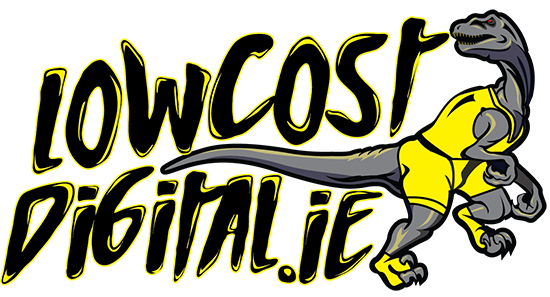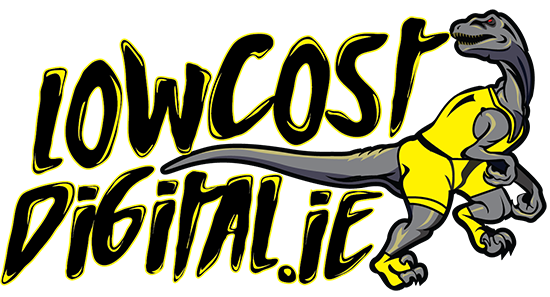1. Proficiency in HTML, CSS, and JavaScript to create visually appealing websites.
2. Strong grasp of user experience (UX) design principles for intuitive site navigation.
3. Knowledge of responsive design to ensure websites function well on all devices.
4. Familiarity with SEO best practices to optimize websites for search engines.
5. Ability to work with graphic design tools like Adobe Photoshop and Illustrator.
6. Experience in web development frameworks such as Bootstrap or WordPress.
7. Excellent communication skills to liaise with clients and understand their needs.
8. Time management skills to meet project deadlines and handle multiple assignments simultaneously.
9. Problem-solving abilities to troubleshoot and debug website issues efficiently.
10. Creativity and attention to detail to deliver unique and polished web design solutions
Key Highlights
- Proficiency in HTML and CSS is for a freelance web.
- Understanding responsive principles is crucial for designing websites that work well on mobile devices- Expertise in user experience (UX) and user interface (UI) design is necessary to create intuitive and visually appealing websites.
- Mastery of Adobe Creative Suite is important for creating high-quality graphics and visuals.
- Knowledge of JavaScript and jQuery is beneficial for adding interactivity to web applications.
- Understanding SEO fundamentals is essential for optimizing websites for search engines.
Introduction
Web design has become an increasingly popular field in the digital era, and the demand for freelance web designers has been on the rise. With the freedom to work remotely and the opportunity to work on a variety of projects, freelance web designers have a unique advantage in the job market. However, to succeed in this competitive industry, it is crucial for freelance web designers to possess a specific set of skills, including the ability to seamlessly integrate into an existing development team. As a website designer, you must also have a strong understanding of current industry trends and a passion for website design.
In this blog, we will discuss the 10 must-have skills for a freelance web designer. These skills are essential for designing and developing websites that are not only visually appealing but also functional and user-friendly. From proficiency in HTML and CSS to expertise in user experience (UX) and user interface (UI) design, each skill plays a crucial role in creating successful web designs. By honing these skills, freelance web designers can ensure that they are equipped to meet the demands of clients and produce high-quality work.
Whether you are a seasoned freelance web designer looking to enhance your skills or someone just starting in the field, this blog will provide valuable insights into the skills needed to thrive in the industry. Let’s dive in and explore each skill in detail.
Essential Skills Every Freelance Web Designer Should Possess
As a freelance web designer, there are several essential skills that you should possess to excel in the industry. These skills will not only help you deliver high-quality work but also set you apart from the competition. In this section, we will discuss each skill in detail and explain why it is important for freelance web designers. www.lowcostdigital.ie
1. Proficiency in HTML and CSS
One of the fundamental skills every freelance web designer should possess is proficiency in HTML and CSS. HTML (Hypertext Markup Language) is the standard markup language used to create the structure of web pages, while CSS (Cascading Style Sheets) is used to control the visual appearance of web pages. By having a strong foundation in HTML and CSS, you will be able to create clean and well-structured code, ensuring that your websites are properly formatted and easily accessible to users.
With HTML and CSS, you can design and build websites from scratch or customize existing templates. This skill allows you to have complete control over the look and feel of a website, making it easier to meet specific requirements and preferences of clients. Additionally, proficiency in HTML and CSS you to troubleshoot and fix any issues that may arise during the development, ensuring a smooth user experience. www.lowcostdigital.ie
2. Understanding of Responsive Design Principles
In today’s digital landscape, where mobile devices play a significant role in accessing websites, having an understanding of responsive design principles is crucial for freelance web designers. Responsive design is an approach to web design that ensures websites adapt and respond to different screen sizes and devices, providing an optimal user experience across all platforms.
By understanding responsive design principles, you can create websites that are visually appealing and functional on both desktop and mobile devices. This includes designing flexible layouts, using fluid grids, and incorporating media queries to adjust the website’s appearance based on the device it is being viewed on. With responsive design, you can ensure that your websites are accessible to a wide range of users, regardless of the device they are using. www.lowcostdigital.ie
3. Expertise in User Experience (UX) and User Interface (UI) Design
User experience (UX) and user interface (UI) design are two essential skills for freelance web designers. UX design focuses on creating a positive and intuitive experience for users when they interact with a website, while UI design focuses on the visual elements and overall aesthetics of a website.
By having expertise in UX and UI design, including experience as a UX designer, you can ensure that your websites are not only visually appealing but also easy to navigate and use. This includes conducting user research, creating wireframes and prototypes, and implementing user-centered design principles. With a strong focus on UX and UI design, including skills as a UX designer and a minimum of 5 years of experience in a UX design role, you can create websites that meet the needs and expectations of users, resulting in a positive and engaging user experience.
4. Mastery of Adobe Creative Suite
Mastery of Adobe Creative Suite is a valuable skill for freelance web designers. Adobe Creative Suite is a collection of design software that includes popular applications like Photoshop, Illustrator, and InDesign. These tools are essential for creating high-quality graphics and visuals for websites.
With Photoshop, you can edit and manipulate images, create stunning graphics, and optimize images for the web. Illustrator is perfect for creating vector graphics and icons, which are essential for web design. InDesign is useful for creating layouts and designing print materials, such as brochures or business cards.
By mastering Adobe Creative Suite, you can bring your creative vision to life and create visually stunning websites. These tools allow you to create custom graphics, design unique layouts, and add professional touches to your web designs, making them stand out from the competition.
5. Knowledge of JavaScript and jQuery
Knowledge of JavaScript and jQuery is beneficial for freelance web designers, especially when it comes to adding interactivity and functionality to websites. JavaScript is a programming language that allows you to create dynamic and interactive elements on web pages. jQuery is a library built on top of JavaScript, providing additional functionalities and simplifying the process of writing JavaScript code.
By having a solid understanding of JavaScript and jQuery, you can enhance the user experience of your websites by incorporating features like animations, interactive forms, and dynamic content. This skill also allows you to create web applications that provide advanced functionality and engage users in a more interactive way.
6. SEO Fundamentals for Web Design
Understanding the fundamentals of search engine optimization (SEO) is essential for freelance web designers. SEO is the practice of optimizing websites to improve their visibility and ranking in search engine results. By incorporating SEO best practices into your web design process, you can ensure that your websites are easily discoverable by search engines and attract organic traffic.
Some key SEO considerations for web design include optimizing page titles, meta descriptions, and heading tags, using descriptive URLs, creating a logical site structure, and optimizing images for search engines. By implementing these SEO fundamentals, you can improve the visibility of your websites and increase the chances of attracting relevant visitors. www.lowcostdigital.ie
7. Project Management Skills for Freelancers
While technical skills are essential for freelance web designers, project management skills are equally important. As a freelance web designer, you will often be juggling multiple projects and working with different clients. Effective project management skills ensure that you can deliver projects on time, within budget, and to the satisfaction of your clients.
Project management skills include effective communication, time management, and the ability to prioritize tasks. By clearly defining project scope, setting realistic deadlines, and effectively managing client expectations, you can ensure smooth project execution. Additionally, project management skills involve the ability to collaborate with clients, developers, and other stakeholders, ensuring that everyone is aligned and working towards the same goals.
8. Effective Communication with Clients
Effective communication skills are crucial for freelance web designers. As a freelancer, you will need to communicate with clients on a regular basis to understand their requirements, provide updates on project progress, and address any concerns or questions they may have.
Clear and concise communication helps ensure that clients’ expectations are met and that projects run smoothly. This includes active listening, asking clarifying questions, and providing timely and detailed responses. Additionally, having a professional email address and using proper etiquette when communicating via email is important to create a positive impression and maintain strong client relationships. www.lowcostdigital.ie
9. Time Management and Meeting Deadlines
Time management is a critical skill for freelance web designers. As a freelancer, you will be responsible for managing your own time and ensuring that projects are completed within the agreed-upon deadlines. Proper time management allows you to balance multiple projects effectively and deliver work on time.
Effective time management involves setting priorities, creating a schedule, and allocating time for each task. Breaking down projects into smaller tasks and setting realistic deadlines for each task can help you stay organized and meet project milestones. By developing strong time management skills, you can ensure that you deliver high-quality work on time and build a reputation as a reliable freelance web designer.
10. Keeping Up with Web Design Trends
Web design is a constantly evolving field, with new trends and technologies emerging regularly. To stay relevant and competitive as a freelance web designer, it is crucial to keep up with the latest web design trends and industry developments.
By staying informed about current design trends, you can create modern and up-to-date websites that appeal to clients and users. This includes following design blogs and publications, attending web design conferences and workshops, and actively engaging with the web design community on social media platforms. By staying ahead of industry trends, you can offer innovative and cutting-edge solutions to clients, setting yourself apart as a skilled and knowledgeable freelance web designer. www.lowcostdigital.ie
Building a Portfolio That Stands Out
Building a strong portfolio is essential for freelance web designers. Your portfolio showcases your skills and capabilities to potential clients and serves as a testament to your design expertise. A well-curated portfolio can help you stand out in a competitive market and attract high-quality clients.
Your portfolio should include a variety of projects that highlight your range of skills and design aesthetics. It should also showcase your ability to solve specific design challenges and deliver results that meet or exceed client expectations. Additionally, including client testimonials in your portfolio adds credibility and helps build trust with potential clients.
Highlighting Your Best Work
When building your portfolio, it is important to showcase your best work. Highlighting your best projects allows potential clients to see the quality and creativity of your designs. Choose projects that demonstrate your skills and expertise in different areas of web design, such as responsive design, user experience (UX), or visual design.
For each project, provide a brief description of the project goals, your role in the project, and the outcome achieved. Include screenshots or links to the live websites to give potential clients a visual representation of your work. By showcasing your best work, you can leave a lasting impression on clients and increase your chances of landing new projects.
Incorporating Client Testimonials
In addition to highlighting your best work, incorporating client testimonials in your portfolio adds credibility and helps build trust with potential clients. Client testimonials provide social proof and demonstrate your ability to deliver quality work and satisfy clients’ needs.
When requesting testimonials from clients, ask for specific feedback on the services you provided, the impact of your work on their business, and their overall satisfaction with your work. Including testimonials that highlight your professionalism, communication skills, and ability to meet deadlines can be particularly impactful. By showcasing positive feedback from satisfied clients, you can build trust and confidence in your abilities as a freelance web designer.
Navigating the Freelance Marketplace
Navigating the freelance marketplace as a web designer can be challenging, but with the right strategies, you can position yourself for success. The freelance marketplace offers a variety of opportunities, from short-term projects to long-term collaborations. To stand out in this competitive market, it is important to find the right platforms for web design projects and set competitive rates for your services. Utilizing effective marketing techniques and building strong relationships with clients can also lead to a steady stream of referrals, making it easier to find consistent freelance work and new opportunities as a freelance web designer. www.lowcostdigital.ie
Finding the Right Platforms for Web Design Projects
Finding the right platforms to showcase your skills and connect with potential clients is crucial for freelance web designers. There are numerous freelance platforms and job boards where you can find web design projects. It is important to research and identify platforms that align with your expertise and target clients.
Consider platforms that have a strong reputation, provide a secure payment system, and offer a wide range of project opportunities. Some popular platforms for freelance web designers include Toptal, Upwork, and Freelancer. By leveraging these platforms, you can increase your visibility and access a larger pool of potential clients. www.lowcostdigital.ie
Setting Competitive Rates for Your Services
Setting competitive rates for your web design services is essential to attract clients and ensure your freelance career is financially sustainable. The rates you set should reflect your level of expertise, the complexity of the project, and the value you bring to clients.
Researching industry standards and understanding the market demand for web design services can help you determine an appropriate hourly rate or project-based fee. It is important to consider factors such as your experience, skill level, and the quality of your work when setting rates.
When discussing rates with potential clients, be confident in the value you provide and be prepared to negotiate. It is important to find a balance between competitive pricing and fair compensation for your time and expertise as a freelance web designer.
Key Takeaways About Freelance Web Design
In conclusion, freelance web design offers a rewarding and flexible career path for designers with the right skills and mindset. By possessing essential skills such as proficiency in HTML and CSS, understanding responsive design principles, and expertise in user experience (UX) and user interface (UI) design, freelance web designers can excel in the industry.
Building a strong portfolio, highlighting your best work, and incorporating client testimonials are crucial for attracting clients and establishing trust. Navigating the freelance marketplace and setting competitive rates for your services are key strategies for success.
With the demand for web design services on the rise, freelance web designers with years of web design experience have the opportunity to work remotely, take on a variety of projects, and create impactful and visually stunning websites. By continuously learning and adapting to industry trends, freelance web designers can stay ahead of the curve and thrive in this dynamic field. Additionally, with the flexibility and freedom that comes with freelance jobs, web designers can have a better work-life balance and choose clients that align with their values and interests. Remote freelance designer jobs with top global clients are also available, providing even more opportunities for growth and success in the field.
Clearly Describe the Topic & Focus
The topic of this blog is the essential skills needed for freelance web designers. The focus of the blog is to provide an overview of the key skills that freelance web designers should possess in order to succeed in the industry. By highlighting the importance of each skill and providing insights into why it is essential, readers will gain a better understanding of the skills they need to develop or enhance to thrive as freelance web designers. www.lowcostdigital.ie
Summarize the State of Knowledge: Knowns and Unknowns
The state of knowledge regarding the essential skills for freelance web designers is well-established. Proficiency in HTML and CSS, understanding of responsive design principles, expertise in user experience (UX) and user interface (UI) design, mastery of Adobe Creative Suite, knowledge of JavaScript and jQuery, understanding of SEO fundamentals, project management skills, effective communication with clients, time management and meeting deadlines, and keeping up with web design trends are known to be crucial for success in the industry.
While the importance of these skills is well-documented, there may be unknowns in terms of the specific techniques and best practices within each skill. As the web design industry evolves, new tools, technologies, and trends may emerge, requiring freelance web designers to continuously learn and adapt.
Explaining the Blog’s Main Argument
The main argument of this blog is that freelance web designers need to possess a specific set of skills in order to excel in the industry. These skills, including proficiency in HTML and CSS, understanding of responsive design principles, expertise in user experience (UX) and user interface (UI) design, mastery of Adobe Creative Suite and figma, knowledge of JavaScript and jQuery, understanding of SEO fundamentals, project management skills, effective communication with clients, time management and meeting deadlines, and keeping up with web design trends, are essential for creating successful and impactful web designs that align with the client’s brand identity. By possessing these skills, the successful candidate will be able to excel in their role as a freelance web designer and stand out in a competitive market.
By honing these skills and continuously learning and adapting to industry trends, freelance web designers can set themselves apart from the competition and deliver high-quality work that meets the needs and expectations of clients. www.lowcostdigital.ie
Enhancing Your Skills Through Continuous Learning
Continuous learning is key to enhancing your skills as a freelance web designer. The field of web design is constantly evolving, with new technologies and trends emerging regularly. To stay competitive and deliver high-quality work, it is important to stay up-to-date with the latest developments in the industry.
Online courses and tutorials are a great way to learn new skills and deepen your understanding of specific areas of web design. Platforms like Udemy, Coursera, and LinkedIn Learning offer a wide range of web design courses that cover various topics, from HTML and CSS to advanced JavaScript and UX design. Taking part in web design workshops and attending industry conferences can also provide valuable learning opportunities and allow you to connect with other professionals in the field.
By investing in continuous learning, you can stay ahead of the curve and continuously improve your skills as a freelance web designer. www.lowcostdigital.ie
Online Courses and Tutorials
There are numerous online courses and tutorials available for freelance web designers to enhance their skills and stay up-to-date with industry trends. These courses cover a wide range of topics, from the basics of HTML and CSS to advanced topics like responsive design, JavaScript frameworks, and UX design.
Online course platforms like Udemy, Coursera, and LinkedIn Learning offer a variety of web design courses taught by industry experts. These courses provide structured learning paths, video tutorials, and hands-on projects to help you develop practical skills. By taking online courses and tutorials, you can learn at your own pace and tailor your learning experience to your specific needs and interests as a freelance web designer.
Attending Web Design Workshops and Conferences
Attending web design workshops and conferences is another valuable way to enhance your skills as a freelance web designer. These events provide opportunities to learn from industry experts, gain insights into the latest trends and technologies, and connect with other professionals in the field.
Web design workshops often offer hands-on training and practical exercises to help you refine your skills. They provide a focused learning environment where you can deepen your understanding of specific topics and receive personalized feedback from experienced instructors.
Conferences, on the other hand, offer a broader perspective on the industry, featuring talks and presentations from leading experts in web design. They provide opportunities for networking, collaboration, and inspiration.
By attending web design workshops and conferences, you can expand your knowledge, gain new perspectives, and build valuable connections within the web design community. www.lowcostdigital.ie
Conclusion
In conclusion, mastering the essential skills and continuously learning in the dynamic field of freelance web design is crucial for success. From technical proficiency to effective communication and project management, each skill plays a vital role in shaping your career. Building a standout portfolio, navigating the freelance marketplace, and staying updated on industry trends are key strategies to thrive in this competitive landscape. By honing your abilities and embracing new knowledge, you can position yourself as a sought-after freelance web designer, meeting client needs and exceeding expectations. Stay proactive, adaptable, and dedicated to continuous improvement to carve a successful path in this exciting profession. www.lowcostdigital.ie
Frequently Asked Questions
How Often Should a Freelance Web Designer Update Their Portfolio?
A freelance web designer should update their portfolio regularly to showcase their latest work and demonstrate their skills and expertise. It is recommended to update the portfolio whenever you complete a significant project or acquire new skills that are relevant to your target clients.
What Are the Best Practices for Communicating with Clients Remotely?
When communicating with clients remotely, it is important to establish clear channels of communication, set expectations, and maintain regular and timely communication. Use professional and concise language in emails, and leverage video calls and screen-sharing tools to enhance communication and understanding.
How Can Freelance Web Designers Stay Ahead of Industry Trends?
Freelance web designers can stay ahead of industry trends by actively following design blogs and industry publications, participating in web design communities on social media platforms, attending web design conferences and workshops, and continuously learning and exploring new techniques and technologies.
What Are the Most Effective Tools for Project Management in Freelance Web Design?
There are several project management tools that freelance web designers can use to streamline their workflow and ensure efficient project management. Some popular tools include Trello, Asana, Basecamp, and Monday.com. These tools help with task organization, collaboration, time tracking, and deadline management.
How to Determine Your Service Rates as a Freelance Web Designer?
To determine your service rates as a freelance web designer, consider factors such as your level of expertise, the complexity of the project, the value you bring to clients, and the market demand for web design services. Research industry standards and competitor rates to set competitive pricing.
Is There a High Demand for Freelance Web Designers?
Yes, there is a high demand for freelance web designers. With the increasing reliance on digital platforms and the need for visually appealing and user-friendly websites, businesses and individuals are seeking the expertise of freelance web designers to create impactful online experiences.
How Can Freelance Web Designers Ensure They Get Paid On Time?
Freelance web designers can ensure they get paid on time by establishing clear payment terms with clients, sending detailed and professional invoices, and following up on outstanding payments. It is important to establish trust and maintain open lines of communication regarding payment expectations.












